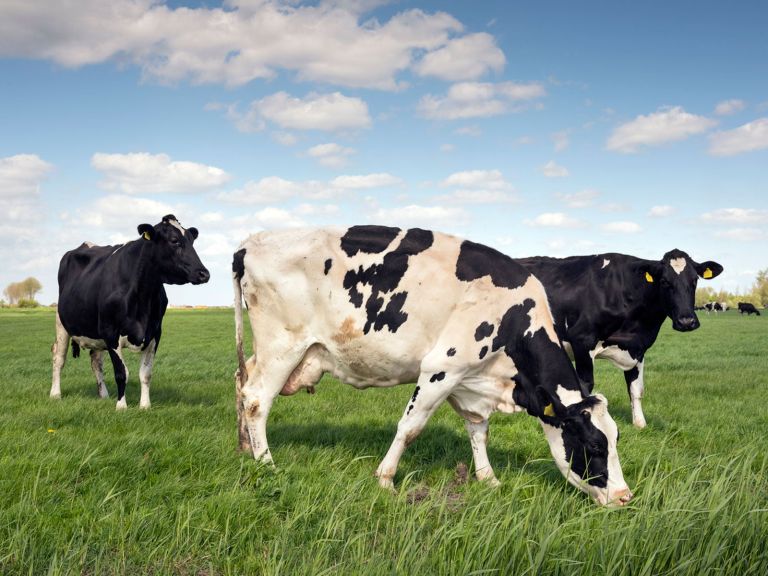
What is Cow Manure and What is it Used For?
Cow manure, also known as cow dung, consists mainly of digested grass and other organic matter like grains, fruits, or vegetables, depending on the cattle’s diet. It’s not just animal waste,it also contains traces of hay, straw, bedding, and other materials used to feed and care for livestock.
This organic waste is packed with nutrients, making it an ideal fertilizer for plant growth. With an NPK ratio of 3-2-1 (3% nitrogen, 2% phosphorus, and 1% potassium), cow manure restores soil nutrients naturally, making it suitable for various crops.
However, raw cow manure contains ammonia and can harbor harmful pathogens, such as E. coli. Thus, it requires a proper composting process to ensure safe and effective use on fields.
Benefits and Drawbacks of Cow Manure Fertilizer
Before using cow manure on your crops, consider both the advantages and drawbacks to determine if it’s the right choice.
Advantages
- Improves Soil Structure: Cow dung enhances soil health and promotes better plant growth.
- Eco-Friendly Option: Using cow manure helps manage cattle waste sustainably, minimizing chemical fertilizer use.
- Biogas Production: Anaerobic digestion of manure produces both fertilizer and biogas, which can be used for cooking or heating.
Disadvantages
- Large Quantity Needed: You need significant amounts of cow manure to see good results.
- Methane Emissions: Composting manure releases methane, a potent greenhouse gas.
- Time-Consuming: Collecting and managing manure can be labor-intensive, and improper storage can cause public health issues.
Cow Manure Composting Methods
To use cow manure safely, it must undergo composting. Here are three methods to turn cow waste into fertilizer.
1. Anaerobic Digestion
In anaerobic digestion, bacteria break down cow waste in a sealed, oxygen-free environment. This process produces:
- Biogas: Used for cooking or heating
- Liquid Fertilizer (Digestate): Improves soil quality
- Solid Residue: Used as compost or mulch
This method ensures zero waste while creating sustainable energy and fertilizer.
2. Hot Composting
Hot composting relies on microorganisms to decompose cow dung at high temperatures.
- Process: Pile manure with other organic material (like hay or food scraps) and turn it periodically.
- Result: Pathogens and weed seeds are destroyed as the pile heats to 55°C (130°F) or higher.
This method is simple but takes longer and offers less control over the final product.
3. Vermicomposting
Vermicomposting involves using earthworms (like red worms) to break down cow manure.
- Process: Worms feed on fresh manure, producing nutrient-rich compost over weeks or months.
- Result: Vermicompost is excellent for improving crop yields but requires regular monitoring.
What Does Cow Manure Contain?
The nutrient composition of cow manure depends on the composting process and added organic materials. However, it typically includes:
- Macronutrients (NPK): Nitrogen, phosphorus, and potassium essential for plant growth
- Micronutrients: Iron and carbon
- Secondary Elements: Calcium, magnesium, and sulfur
Its high water content also helps regulate soil pH and supports healthy root development.
Is Cow Manure Safe to Use?
When properly composted, cow manure is safe for plants, soil, and public health. It eliminates ammonia and harmful pathogens, reducing environmental risks.
However, improper management can lead to soil and water contamination. Additionally, cattle farming contributes to greenhouse gas emissions, including methane and carbon dioxide, so it’s essential to compost manure responsibly to minimize environmental impact.
Furthermore, manure storage must be handled carefully to avoid contamination of nearby water sources like wells, lakes, or rivers.
Cow manure is a valuable organic fertilizer that promotes healthy plant growth and improves soil quality. Although it requires proper composting to eliminate risks, it offers a sustainable way to manage cattle waste and reduce reliance on chemical fertilizers. Whether you choose anaerobic digestion, hot composting, or vermicomposting, turning cow manure into fertilizer helps you grow plants naturally while contributing to environmental sustainability.


